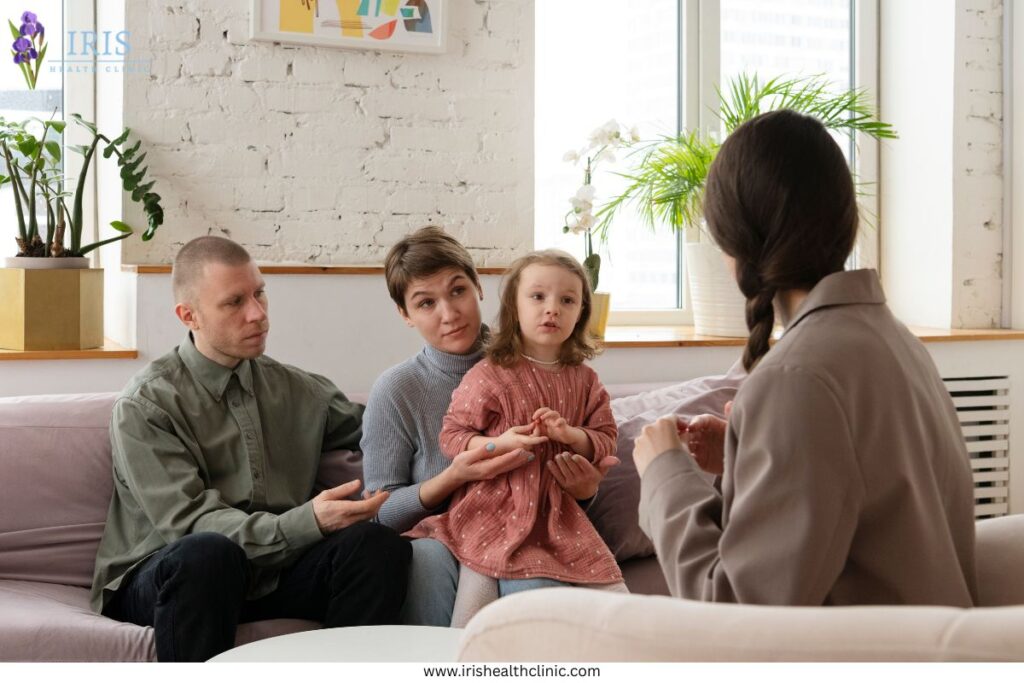Addiction does not only make an individual suffer; it is strongly associated with the whole family. Whether you are a parent or a spouse, brother or sister, or the afflicted child-watching someone you love suffer due to substance use can be emotionally draining, confusing as well as traumatizing. This is where family therapy for addiction recovery comes. It provides that necessary connection between pain and healing into a direction well-structured into the future for everyone involved.
Here are just 10 key benefits to undergoing family therapy for addiction recovery and making it a priority in any complete treatment program.

1. Rebuilt Broken Trust
Addiction often leads to lies, deception, or broken promises. Family therapy for drug addiction provides an environment for coming to the table and talking about everything openly. With the guidance of family therapy, the family members start to rebuild trust and mend unable-to-repair relationships.
2. Polishes up on Communication
Poor communication could also be the basis for addiction; or it could also be a consequence. Therapy teaches families how to put their feelings into words: putting forth such feelings clearly, honestly, and without rath. Each member listens to and understands the others as being important for a healthy family unit.
3. Generational Trauma Treatment.
Unresolved trauma patterns are common in many families. Either way, adopting family trauma counseling together can help the families recognise their hidden wounds and learn about the possible methods: an abusive childhood, undiscussed neglect, or untreated mental illness. It responds to pain from the past and, therefore, it cuts off such pain from continuing into generations.
4. Teaches Healthy Boundaries
Unintentional enabling can prolong addiction. Family therapy helps its members recognize the unhealthy dynamics and teach them how to set boundaries in a way that protects both themselves and their loved ones in recovery.
5. Promotes Long-Term Recovery
The support of family members can make or break a person’s recovery. Studies show that drug-addicted individuals who engage in family therapy are more likely to stay sober in the long run than those who face the problem alone.
6. Reduces Guilt and Shame
Family members often become tormentors, feeling guilty and blaming themselves for their loved one’s addiction. This form of therapy helps break that pattern while providing clarity and compassion. It also allows the recovering person to free themselves of the shame that can hinder their progress.

7. Aids in the Prevention of Relapse
An informed family could identify the relapse warning signs to include therapy tools on what the relatives can do to support them instead of judging them during relapses.
8. Provides Information of Addiction
Misconceptions about addiction are a source of conflict and discontent. Family therapy teaches all participants the scientific basis for substance use disorders, therefore de-stigmatizing and enhancing understanding.
9. Provides That Children Have A Place in the Home
Children in homes affected by addiction or substance abuse are particularly susceptible. Family trauma therapy will ensure that the child’s voice is heard and their emotional needs will be suitably expressed, thus minimizing the potential for future mental health problems.
10. Fortifies the Whole Family
The end goal of family therapy for addiction recovery is not simply to help the individual struggling; instead, it is intended purely as healing for the family system as a whole. As each member grows together, their recovery becomes a collective journey rather than an individual battle.
Searching for Assistance?
Clearly, you are not the only one searching for family counsels close to your area. Numerous local providers specialize in family therapy for drug addiction and family trauma therapy with both in-person and online options. If today’s therapy investment can synthetically lay the groundwork for truly healthy change tomorrow.
Conclusively
Getting free from addiction is not a one-person process-it’s everybody’s work. By engaging in family therapy for addiction, you are not only embracing healing, but you also have a chance at resilience and a better future for everyone concerned.

